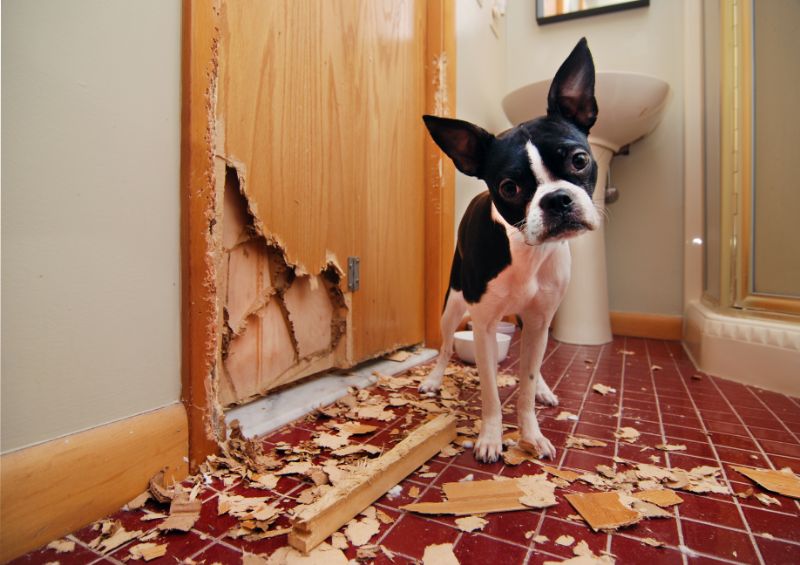Oh Behave! Pet Behavioral Problems

Your relationship with your pets is likely a strong one, and there are very few things that can change that. At Volunteer Veterinary Hospital, though, we do sometimes see wedges come between animals and their owners. One of the most common reasons we see for trouble in paradise is pet behavior problems.
Whether it’s chewing up your belongings, relieving themselves on your carpet, fighting with your other animals, or something else altogether, pet behavior problems can really put a strain on the human-animal bond. No matter the issue, though, there are things that you can do and ways that we can help.
Back to the Basics
Whenever a pet is having trouble with behavior, it is important to go back to the basics and be sure that the problem doesn’t stem from something in your control. Being sure that your pet is being cared for properly and has everything they need can help a great many issues.
Your pet needs:
- A high quality diet in an appropriate amount
- Access to vital resources such food, water, and shelter (consider the role other pets may take in access)
- Regular social interaction with people and other animals as appropriate
- Daily exercise
- Mental stimulation daily from things like training sessions, puzzle toys, and interactive objects
- A good pet wellness care routine
If your pet isn’t getting all they need, behavioral problems tend to become much more prominent. Revisiting these key needs can help to resolve or prevent them.
Intervening on Pet Behavior Problems
Some pet behavior problems may persist despite your best efforts. This may be because they are deeply ingrained, rooted in problems like anxiety or fear, or because of a true medical problem. When you are sure that you have the basics covered and still need help, it is time to give us a call.
When you bring your pet in for evaluation about a behavior issue, we will start by gathering all the information surrounding the issue- when and how often it occurs, what your pet actually does, how you react, how other family members and pets play into the issue. Video recordings of the behavior can sometimes be very helpful as well.
Once we have identified the issue, we will:
Rule out medical causes – Sometimes a pet behavior problem is actually a pet health problem. Things like thyroid disturbances, certain medications, and urinary tract issues can manifest trouble. A good physical examination as well as diagnostics such as blood work and urinalysis are often warranted to rule these things out.
Coach you through adjustments to your role in the issue – Once we have determined the problem, sometimes we can identify ways that you are inadvertently rewarding or encouraging unwanted behaviors. Waking up and feeding your cat who is pestering you at 4 a.m. gives her what she wants and encourages the behavior to happen again, likely with more persistence. We are sometimes better able to see these slip ups from an outside perspective and help you to fix them.
Make environmental change suggestions – While it isn’t always the solution that people want, sometimes making a simple change to your habits is the easiest fix. Closing the bedroom door where your cat likes to urinate or putting your garbage can in a puppy-proof cabinet may make all the difference in the world.
Discuss training techniques – We can also coach you through positive-reinforcement training techniques to help your pet relearn how you want them to behave. For example, teaching your dog to lay quietly in a designated area while you eat dinner instead of begging may be a positive solution.
Consider medications – There are some situations where medications may be needed to help correct your pet’s behavior, especially where fear and anxiety are involved. These are not cure-alls to be used in isolation, but rather adjuncts to other training techniques and efforts. Where appropriate, we will prescribe these and guide you through their use.
Refer when appropriate – There are definitely some pet behavior problems that require an expert. When these occur, we may refer you to a board certified veterinary behaviorist to help.
Pets are a huge and important part of most of our lives. When a behavior problem surfaces it can strain that relationship, though. Thankfully, our expert staff is here to help guide you through that storm and strengthen the bond between you and your furry family member.

